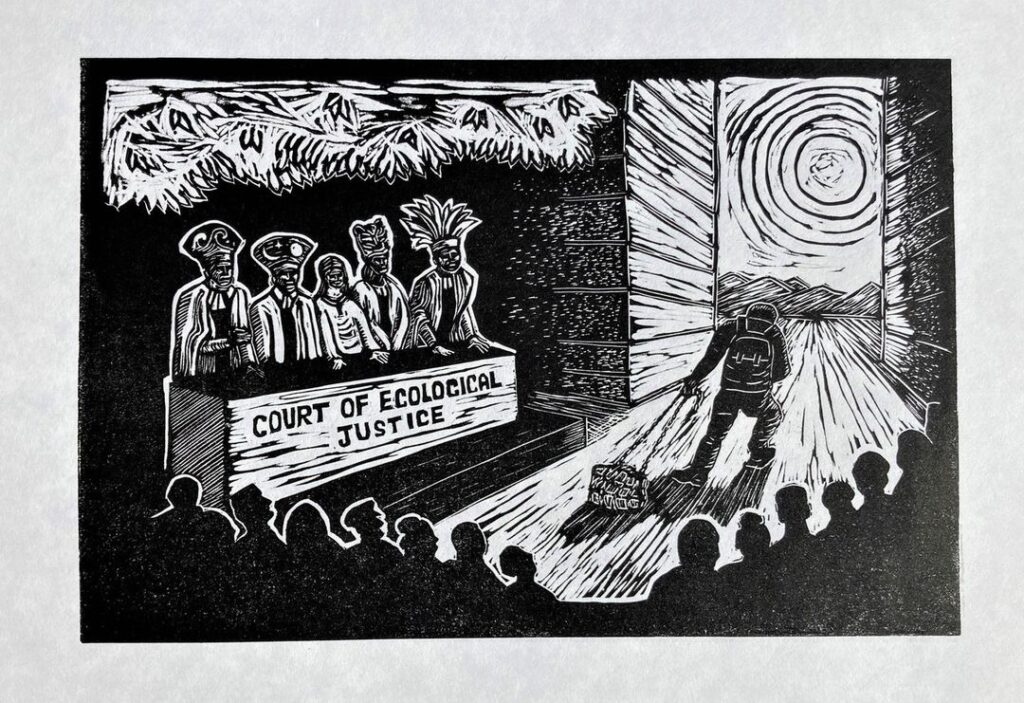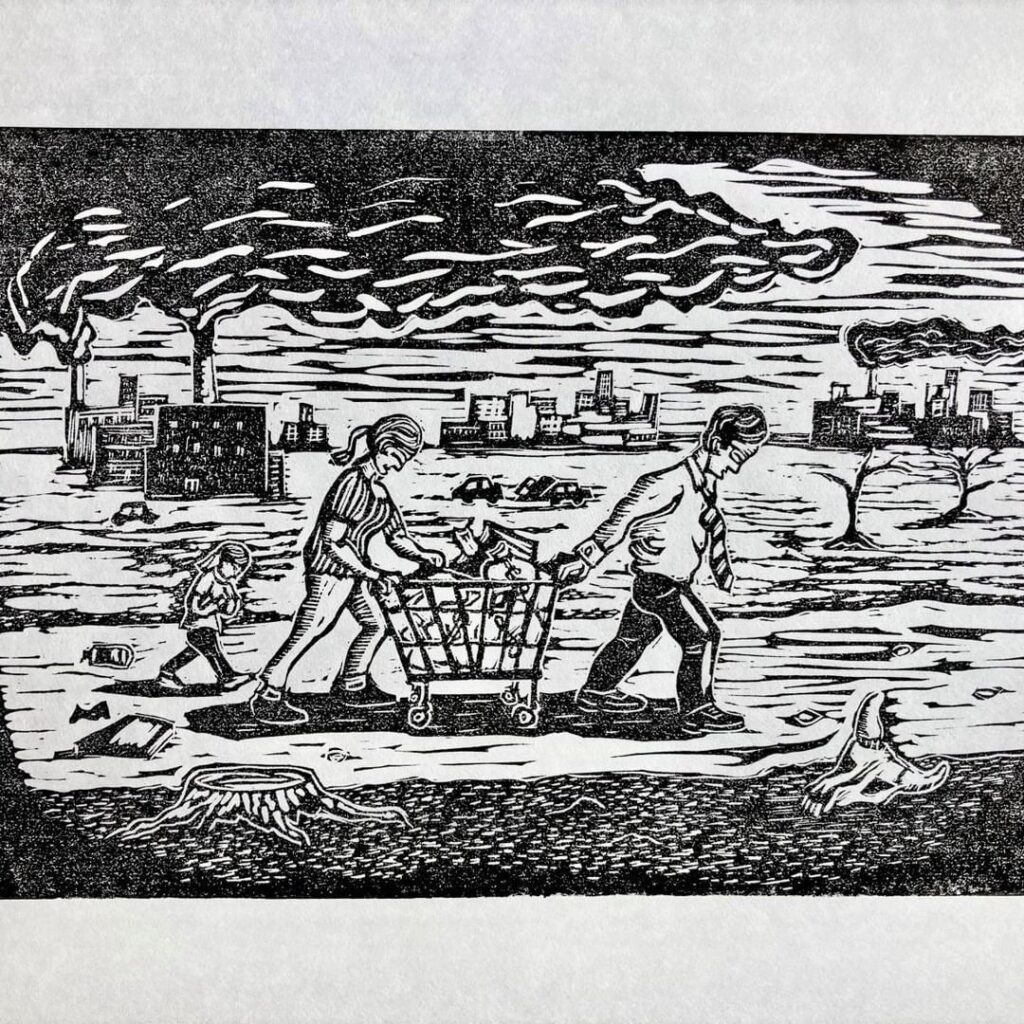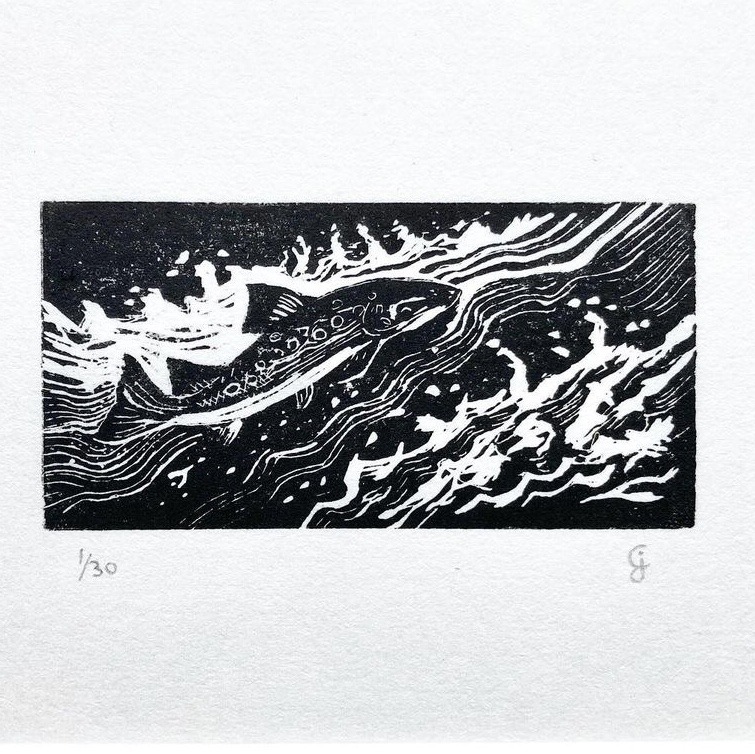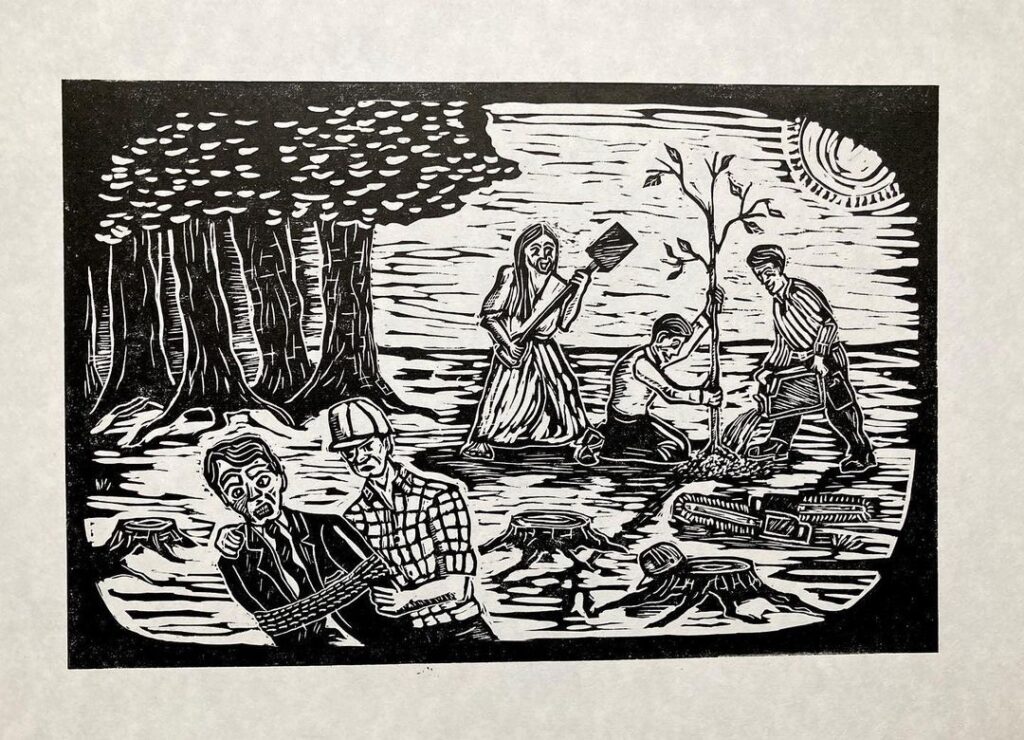I am posting this piece from my "Climate Crisis" series in support of the MAHB art call on Social Justice. I believe it aligns closely with the following comments made by Richard Heinberg in the "Think Resilience" course,
"Of course, equity in communities is not just a matter of ownership and income. Access to political power, public services, and legal protections are just as important. Laws are the rules that determine how we all coexist in community, and politics is the process by which we make and enforce those laws. If all community members do not have fair influence in how
governmental policies are made, then inequities can arise in any number of ways."
I agree. The idea of a small number of individuals (sadly even including rulers of states) and enterprises destroying the earth's common resources for profit or power is no longer acceptable let alone sustainable. But I would go even further and observe that legal protections must extend to those elements of the planet that have no voice.
My vision of a Court of Ecological Justice, includes a panel of judges who will of course consider narrower human interests but also act as specialist advocates for the silent voices of the animal life, marine and land habitats, the skies and air and of our children and their successors. In this image each of the judges wears the symbol of their allocated voice.
Join The List
Want to hear from us occasionally? Subscribe to our newsletter



